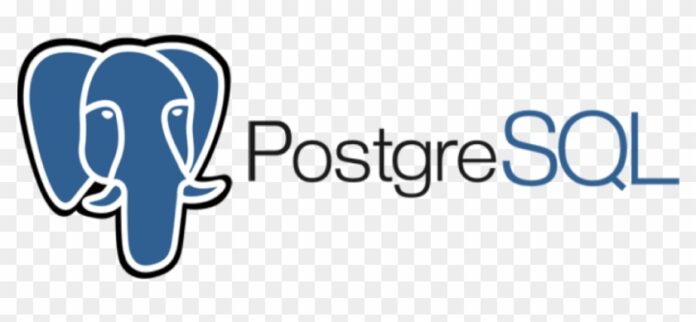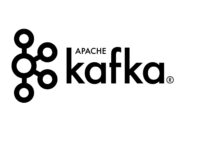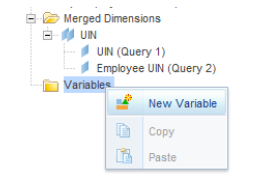PostgreSQL DBA (Database Administrator) Questions
1. General PostgreSQL Knowledge:
- What is PostgreSQL, and why would you choose it over other databases?
- What is MVCC (Multi-Version Concurrency Control) in PostgreSQL, and how does it work?
- Explain the difference between PostgreSQL and MySQL in terms of features and performance.
- What are the ACID properties, and how does PostgreSQL comply with them?
- How do you check the PostgreSQL version and configuration details on a server?
- What are some of the most important configuration parameters in
postgresql.confthat you would tune for performance?
2. Backup and Restore:
- How do you perform a backup in PostgreSQL using
pg_dumpandpg_basebackup? - What are the differences between a logical backup and a physical backup in PostgreSQL?
- How would you restore a database from a logical dump?
- How do you perform Point-In-Time Recovery (PITR) in PostgreSQL?
- What strategies would you employ to ensure high availability and disaster recovery in PostgreSQL?
3. Performance Tuning:
- How do you analyze the performance of a PostgreSQL query?
- What is
EXPLAINandEXPLAIN ANALYZE, and how would you use them to troubleshoot slow queries? - How does PostgreSQL handle indexing, and what are the different types of indexes available?
- What is autovacuum, and how does it impact performance?
- How do you tune memory-related parameters in PostgreSQL (e.g.,
shared_buffers,work_mem,maintenance_work_mem)? - What is WAL (Write-Ahead Logging), and how does it work? How can you tune the WAL configuration?
- How would you handle a situation where disk I/O is becoming a bottleneck?
4. Security:
- How do you manage roles and permissions in PostgreSQL?
- What are
pg_hba.confand its significance in PostgreSQL security? - How do you set up SSL encryption in PostgreSQL?
- Explain the use of row-level security (RLS) in PostgreSQL.
5. Replication:
- What is replication in PostgreSQL, and what are the different types?
- How do you set up streaming replication in PostgreSQL?
- What are the key differences between synchronous and asynchronous replication?
- How do you monitor replication status and identify lag issues?
- How do you handle a failover scenario in a replication setup?
6. Maintenance and Monitoring:
- How do you monitor the health of a PostgreSQL database?
- What tools would you use to monitor and maintain PostgreSQL performance?
- How do you handle bloating issues in PostgreSQL?
- What is the importance of vacuuming in PostgreSQL, and when would you use
VACUUM FULLvsVACUUM? - How do you manage database logs and identify issues from logs?
PostgreSQL Developer Questions
1. Basic SQL and PostgreSQL Features:
- What are the key differences between SQL syntax in PostgreSQL and other RDBMSs like MySQL or SQL Server?
- How do you create a new database and table in PostgreSQL?
- Explain how constraints (e.g., primary key, foreign key, unique) work in PostgreSQL.
- What are
CROSS JOIN,INNER JOIN,LEFT JOIN, andRIGHT JOIN? Provide examples of each. - How does PostgreSQL handle NULL values in comparison operations?
- What are CTEs (Common Table Expressions), and how do you use them?
2. Advanced Query Techniques:
- What are window functions, and how do they work in PostgreSQL? Can you provide an example?
- Explain the use of
WITHqueries in PostgreSQL. - What are the benefits of using prepared statements, and how do you create them in PostgreSQL?
- What is a materialized view, and how does it differ from a regular view?
- What are arrays in PostgreSQL, and how can you store, query, and manipulate array data?
- How do you use JSON and JSONB data types in PostgreSQL? What are the differences between them?
3. Indexing and Query Optimization:
- What are the different types of indexes in PostgreSQL (e.g., B-tree, GIN, GiST, BRIN)? When would you use each?
- How does PostgreSQL use indexes to improve query performance?
- What are partial indexes, and how would you use them in your queries?
- How do you analyze the performance of a query using
EXPLAINorEXPLAIN ANALYZE? - What is a covering index, and how would you implement it in PostgreSQL?
4. Functions and Procedures:
- How do you create a function in PostgreSQL? What is the difference between a function and a stored procedure?
- How does PostgreSQL handle PL/pgSQL, and what are some use cases for writing custom functions?
- How do you handle error handling in PL/pgSQL?
- What is the difference between
IMMUTABLE,STABLE, andVOLATILEfunctions? - What is a trigger in PostgreSQL, and how would you create one?
5. Transactions and Concurrency:
- How does PostgreSQL handle transactions? What are
BEGIN,COMMIT, andROLLBACKused for? - What are isolation levels in PostgreSQL, and how do they affect transactions?
- How does PostgreSQL handle deadlocks, and how can you avoid them in your application?
- What are advisory locks in PostgreSQL, and when would you use them?
6. Working with Data Types:
- What are some of the most common data types in PostgreSQL, and when would you use them?
- How do you handle custom data types in PostgreSQL?
- What is the
UUIDdata type, and how would you use it in a table? - How does PostgreSQL handle date and time types, and what are some common functions for working with them?
- How would you store hierarchical data in PostgreSQL, and what are some ways to query it (e.g., adjacency list, nested set model)?
7. ORMs and Integration with Applications:
- How do you integrate PostgreSQL with an application using an ORM (e.g., SQLAlchemy, Hibernate, or Django ORM)?
- What are some common challenges when working with PostgreSQL from an application layer, and how do you resolve them?
- How do you handle pagination in PostgreSQL queries?
- What are the benefits and drawbacks of using
PL/pgSQLcode within the database versus handling logic in the application code?
What is PostgreSQL?
PostgreSQL is a powerful, open-source, object-relational database management system (ORDBMS) known for its robustness, extensibility, and standards compliance. It supports both SQL (relational) and JSON (non-relational) querying, making it highly versatile. PostgreSQL is widely used in production environments for handling various workloads, ranging from small single-machine applications to large-scale data warehouses or web services with many concurrent users.
Why Choose PostgreSQL Over Other Databases?
Here are several reasons to choose PostgreSQL over other database management systems:
- Open-Source and Free:
- PostgreSQL is completely free to use, modify, and distribute without any licensing costs. This makes it appealing to startups and large organizations.
- ACID Compliance:
- PostgreSQL is fully ACID-compliant (Atomicity, Consistency, Isolation, Durability), ensuring reliable transactions and data integrity even in complex environments.
- Advanced SQL Features:
- PostgreSQL supports advanced SQL features like Common Table Expressions (CTEs), window functions, and full-text search. These features allow developers to write complex queries with ease, improving performance and maintainability.
- Extensibility:
- PostgreSQL is highly extensible. Users can define their own data types, operators, index types, and functions (written in PL/pgSQL, Python, Perl, or other languages). It also supports a rich ecosystem of extensions (like PostGIS for spatial data).
- Support for NoSQL Features:
- PostgreSQL supports JSON and JSONB data types, allowing for efficient storage and querying of semi-structured data. This makes PostgreSQL a hybrid database capable of handling relational and NoSQL-style data.
- Strong Support for Concurrency (MVCC):
- PostgreSQL uses Multi-Version Concurrency Control (MVCC), allowing multiple users to read and write data concurrently without locking issues. This leads to high performance in multi-user environments.
- Rich Indexing Options:
- PostgreSQL supports several indexing methods (B-tree, Hash, GIN, GiST, BRIN) optimized for different use cases. This flexibility allows for improved query performance depending on the specific workload.
- Reliability and Stability:
- PostgreSQL is known for its stability and data integrity. Its mature features, such as Point-in-Time Recovery (PITR), Write-Ahead Logging (WAL), and replication, ensure data safety and recovery in case of failure.
- Cross-Platform Compatibility:
- PostgreSQL runs on all major operating systems, including Linux, Windows, and macOS, offering flexibility in deployment environments.
- Advanced-Data Integrity:
- PostgreSQL supports advanced data integrity features such as foreign keys, unique constraints, exclusion constraints, and full referential integrity.
- Community and Ecosystem:
- PostgreSQL has a strong and active community that continuously develops new features and provides support. Many third-party tools, libraries, and extensions extend its capabilities.
- Performance and Scalability:
- PostgreSQL efficiently handles large datasets and complex queries. It supports vertical scaling (by adding more resources to a single machine) and horizontal scaling (via replication and partitioning), making it suitable for large, high-traffic systems.
Comparison with Other Databases:
- PostgreSQL vs MySQL:
- Features: PostgreSQL has more advanced features (e.g., window functions, CTEs, full-text search) than MySQL.
- Standards Compliance: PostgreSQL is more compliant with SQL standards.
- Extensibility: PostgreSQL is more flexible with custom data types and indexing options.
- Performance: PostgreSQL is often chosen for complex queries and data analytics, while MySQL may perform better in simple read-heavy operations.
- JSON Support: While both support JSON, PostgreSQL has better performance and indexing for JSONB.
- PostgreSQL vs MongoDB:
- Structure: PostgreSQL provides full SQL querying for structured data, while MongoDB is document-oriented for unstructured data.
- Transactions: PostgreSQL supports ACID transactions across multiple tables, whereas MongoDB was originally designed without ACID guarantees (although newer versions support transactions).
- Flexibility: PostgreSQL offers both relational and NoSQL features (via JSONB), making it more versatile.
- PostgreSQL vs Oracle:
- Cost: PostgreSQL is free and open-source, whereas Oracle requires expensive licensing.
- Extensibility: PostgreSQL is more developer-friendly due to its open-source nature, while Oracle is more controlled.
- Community: PostgreSQL has a large, vibrant community, while Oracle offers enterprise-level support.
In summary, PostgreSQL is a highly reliable, feature-rich, and cost-effective choice for many types of applications, particularly where data integrity, extensibility, and complex queries are required.









